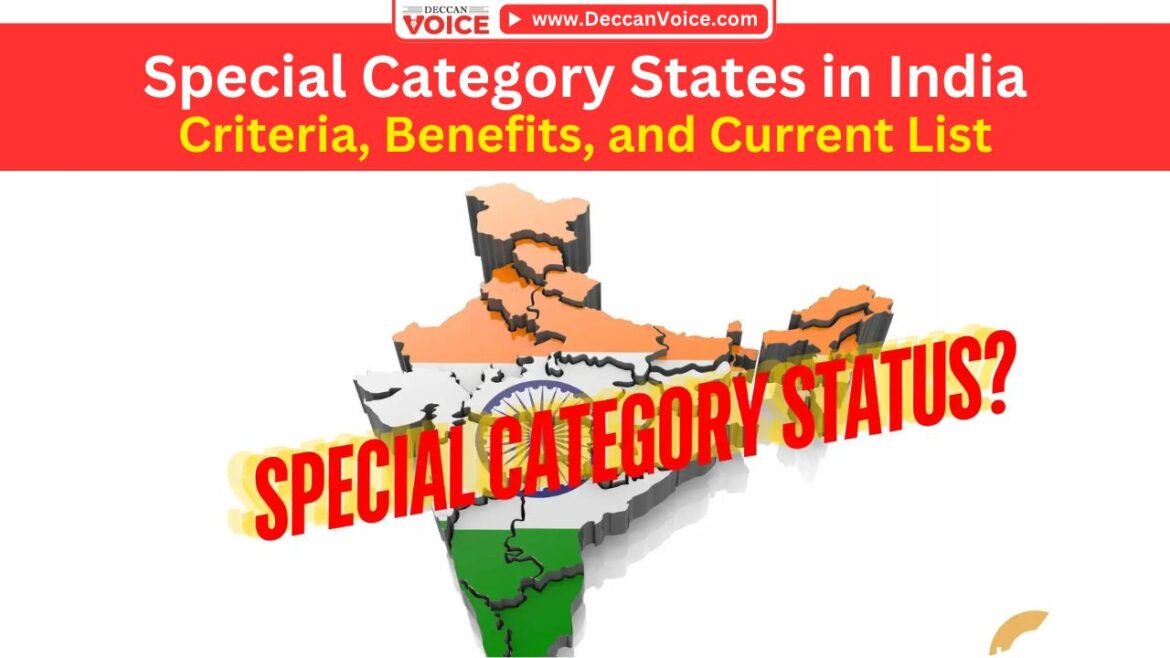In India, the concept of “Special Category State” (SCS) was introduced in 1969 to address the unique socio-economic and geographical challenges faced by certain states. These states require special attention and support due to their distinct needs, which often include difficult terrain, sparse population, and lower levels of infrastructure and development. This article explores the criteria for SCS designation, the benefits provided, and the current list of states under this category.
Criteria for Special Category State Status
The National Development Council (NDC) initially granted SCS status based on a set of specific criteria, which include:
- Hilly Terrain: States with significant mountainous regions, which pose challenges to infrastructure development and connectivity.
- Strategic Location: States located along international borders, which may have security and defense implications.
- Economic and Infrastructure Backwardness: States with lower levels of industrialization, inadequate infrastructure, and economic development.
- Non-Viable State Finances: States with limited financial resources and higher costs of providing basic services due to their geographical and socio-economic conditions.
- Low Population Density and Significant Tribal Population: States with a sparse population and significant tribal communities requiring targeted development efforts.
These criteria ensure that the states which face significant developmental challenges receive the necessary financial and administrative support to overcome these hurdles.
Benefits of Special Category Status
States designated as SCS receive several benefits aimed at fostering development and addressing their unique challenges:
- Financial Assistance: SCS states receive central assistance at a higher share compared to other states. This includes a 90% grant and 10% loan component, compared to the usual 30% grant and 70% loan for other states.
- Preferential Treatment in Resource Allocation: SCS states get preferential treatment in the allocation of central funds and projects.
- Tax Concessions: Industries set up in SCS states often receive various tax concessions to encourage investment and industrialization.
- Special Schemes: Central government implements specific schemes and programs tailored to the needs of SCS states, focusing on infrastructure, education, healthcare, and employment.
- Debt Relief: SCS states may receive debt relief or restructuring assistance due to their challenging financial conditions.
Current List of Special Category States
As of the latest available data, the following states have been accorded Special Category Status:
- Arunachal Pradesh
- Assam
- Himachal Pradesh
- Jammu & Kashmir (now a Union Territory)
- Manipur
- Meghalaya
- Mizoram
- Nagaland
- Sikkim
- Tripura
- Uttarakhand
It is important to note that after the reorganization of Jammu & Kashmir in 2019, its status as a state was changed to a Union Territory, and it now receives assistance under different terms.
Application Process for Special Category Status
New states aspiring for SCS status must present a compelling case based on the established criteria. The application involves:
- Proposal Submission: The state government must submit a detailed proposal to the central government, outlining its unique challenges and justifications for seeking SCS status.
- Review and Recommendations: The central government, often involving the Finance Commission and NITI Aayog, reviews the proposal. The National Development Council (NDC) also plays a critical role in evaluating the application.
- Final Approval: The NDC makes recommendations to the central government, which then makes the final decision on granting SCS status.
Challenges and Criticisms
While the SCS designation has provided much-needed support to several states, it has also faced criticisms and challenges:
- Equity Concerns: Some argue that the criteria for SCS status can lead to inequities among states, with certain non-SCS states facing similar challenges but not receiving equivalent support.
- Dependency Syndrome: There is a concern that prolonged dependence on central assistance may discourage states from improving their financial self-sufficiency and governance.
- Political Considerations: Critics have pointed out that the decision to grant SCS status can sometimes be influenced by political considerations rather than purely developmental needs.
Conclusion
The Special Category State status plays a crucial role in addressing the unique developmental challenges faced by certain states in India. By providing financial assistance, preferential treatment in resource allocation, and other benefits, SCS status aims to promote balanced regional development and reduce disparities. However, the criteria and process for granting SCS status must continually evolve to ensure that support is equitably and effectively distributed to the states most in need.



